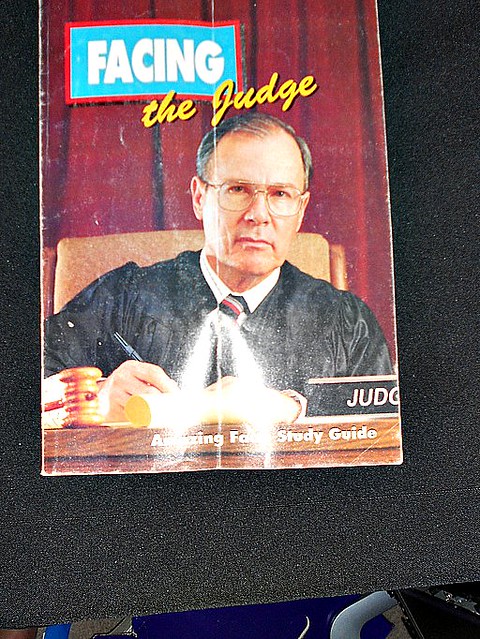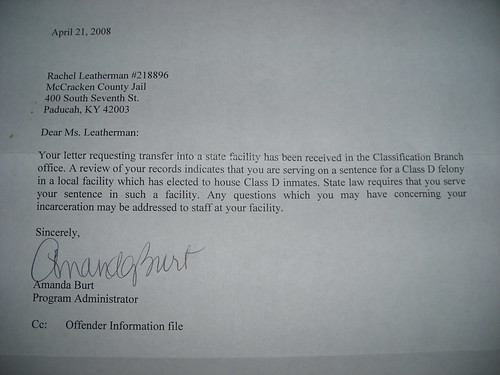This is related to the Frog Gravy legal case.
This is part one of Kentucky crime lab analyst Ryan Johnson falsely testifying at trial by posing as a clinical expert and delivering information about this prescription drug that is false, misleading, totally unsupported anywhere in any literature on the planet, or a combination of all.
In the next few days, I will upload the rest, and then I will use this testimony as a the basis of a detailed complaint that I plan to file with the accreditation board and other authorities. At that time, I will go into gruesome detail, sentence by sentence beginning with the chemistry and going into information in the clinical literature. I will back each and every claim with the FDA-regulated package insert, the peer-reviewed literature, or a combination of both. I will provide detailed background based in known fact where appropriate, particularly regarding the organic chemistry as well as the clinical ‘effects’ of this drug.
He claims during the testimony (just to provide a teaser), that the lab had no idea it was supposed to look for this commonly prescribed benzodiazepine, and even if it did, the lab had no way of detecting the very presence of it. Problem is, and this is just one of his many problems here, he DID have that request, and he DID at least screen for the presence of benzodiazepines. Even though the lab can and does use outside competent labs for quantification, he did not send the blood to an outside lab, and that is likely because he did not detect the presence of a benzodiazepine in the blood in the first place, so there was no need for the second prong of the test, which would include quantification.
His clinical claims are false and bizarre.
As a result of this man’s false testimony, I was convicted of some crimes that I did not commit, and that includes a DUI with no drugs or alcohol in my blood, and without any bad driving or traffic violations. As a result of his false testimony, there is now a published opinion affirming in the Kentucky Court of Appeals, that contains a great deal of false information and science fiction. If you wish to lose IQ points, give it a read. Here is that opinion.
I will share the entire complaint with every appropriate related link, once I get the whole thing uploaded.
UPDATE: Here is the follow-along transcript for this portion. Second portion is being uploaded to YouTube and a transcript will be available for the whole testimony within a day or so. I will then share with my readers a sentence-by-sentence analysis of the false statements with backing literature.
Ryan Johnson (JOHNSON) is on the stand, under oath.
Chris McNeill (DEFENSE) is the defense attorney.
James A. Harris (COMMONWEALTH) is the prosecutor.
Hon. Judge Craig Z. Clymer (COURT) is the presiding trial court judge.
The testimony occurred on 1-22-2008, and was recorded on videotape. Here is that testimony.
COMMONWEALTH: (unintelligible)… Please, sir.
JOHNSON: Uh, my name is Ryan Johnson.
COMMONWEALTH: And how are you employed, Mr. Johnson?
JOHNSON: Um, I am a Forensic Science Specialist with the Kentucky State Police, um, Central Forensic Laboratory.
COMMONWEALTH: That’s in Frankfort.
JOHNSON: Yes, sir.
COMMONWEALTH: So you’ve got a four-hour drive to go home, lookin’ at you.
JOHNSON: (chuckles) Yes, sir.
COMMONWEALTH: Um. And, just summarize for our jury your training, and your education that qualifies you to practice in our lab.
JOHNSON: Um, I have a Biology and a Chemistry Bachelor of Science from (sounds like Pikeville College), (unintelligible) testing at the Kentucky State Police in Central Forensic Laboratory and I’ve had ongoing education approved for studying drug effects on human behavior, um and, the Society of Forensic Toxicology annual conferences (unintelligible).
COMMONWEALTH: You understand there are two subjects I want to ask you about (unintelligible) right to the blood sample that was sent to you, you can stipulate that there was a blood sample taken from Rachel Leatherman on the night of June 28, ’06, you did a blood test to see if there was any drugs in her blood, is that right?
JOHNSON: That’s correct, yes.
COMMONWEALTH: And your, what you test for came back “no drugs in her blood,” is that right?
JOHNSON: That’s correct, yes.
COMMONWEALTH: Okay. Now. This test that you run for drugs in her blood, does that test for clonazepam?
JOHNSON: No sir, it does not.
COMMONWEALTH: Why is that?
JOHNSON: Uh, clonazepam is a chloro-derivative benzodiazepine. Basically, it’s a, it’s a drug like diazepam but they put a chlor, a chlor, a chlorine atom on it, and that ends up, um, making it so that the test that we run, it’s called a liquid-liquid extraction, um, that test is incapable of pulling clonazepam out of the blood. So, it’s a, it’s a issue of, we need, um, the drug actually is, needs to be ran, to test for that drug, needs to be ran on, uh, what’s called liquid chromatography and with the budget the way it is right now we don’t have that instrument.
COMMONWEALTH: Um. (clears throat) Your test would have tested for heroin?
JOHNSON: Uh, we would have detected opiates.
COMMONWEALTH: You would have, would have, your test would have determined whether there was either rock or powder cocaine or its derivatives and (unintelligible) derivatives in the blood…
JOHNSON: Yes, sir.
COMMONWEALTH: And it came back negative on that.
JOHNSON: It was negative for cocaine and opia…
COMMONWEALTH: (interrupting) No heroin, no opiates, no forms of cocaine.
JOHNSON: That’s correct.
COMMONWEALTH: Can’t tell us about clonazepam.
JOHNSON: I couldn’t tell you if it had clonazepam in it.
COMMONWEALTH: As to her blood.
JOHNSON: As to her blood, yes.
COMMONWEALTH: Okay. Now I’m going to ask you about clonazepam. Are you familiar with it?
JOHNSON: Yes sir, I am.
COMMONWEALTH: Have you read the literature on it?
JOHNSON: Yes, sir, I have.
COMMONWEALTH: Including not only the, the uh, manufacturer’s um, data sheet, um, but also the other, uh, PDR-type references that describe clonazepam and its effects?
JOHNSON: Yes, sir, the general textbooks that we use are the PDR, which is the Physician’s Desk Reference, um, the Courtroom Toxicology, which is a database of drugs and their effects, um and how, how they can be detected, uh, ranges, and then another book, it’s called, um Drug Effects on Human Behavior, um, it’s just another book to tell us if there is any driving effects…
COMMONWEALTH: (interrupting) And since you don’t have a clonazepam test that you did on her blood, you can’t tell us about any clonazepam levels in her blood.
JOHNSON: That’s correct.
COMMONWEALTH: So I’m going to ask you to answer my questions based on normal dosages, okay?
JOHNSON: Yes, sir.
COMMONWEALTH: Uh, within a normal dosage time, okay?
JOHNSON: Yes, sir.
COMMONWEALTH: Um. First of all, taken in normal dosages, can you tell our jury whether clonazepam is generally what we would refer to as intoxicating?
JOHNSON: Um, for the most part, it’s considered a potent sedative, which would be intoxicating, yes, sir.
COMMONWEALTH: Potent, does that mean very intoxicating?
JOHNSON: Uh, yes, sir, it’s considered about, uh, according to the recent literature I’ve read, about twenty times more potent than valium.
COMMONWEALTH: Twenty times more potent than valium.
JOHNSON: Yeah, on a milligram-per-milligram basis.
COMMONWEALTH: And, what are the chemically, scientifically, pharmacologically recognized effects on vision of someone who is taking normal dosages of clonazepam?
JOHNSON: It can cause double vision, blurred vision.
COMMONWEALTH: Um, do you know anything about the HGN test?
JOHNSON: Um, according to what I’ve read, uh, the DRE, which is the Drug Recognition Expert, um, they recommend that benzodiazepines does cause HGN. I wasn’t for sure…
COMMONWEALTH: Causes the signs of HGN.
JOHNSON: Yes, um, after reading the literature that we have, it does say that nystagmus, either vertical or horizontal, are present, as a side effect.
COMMONWEALTH: A person taking clonazepam is likely to flunk the HGN test.
JOHNSON: That’s correct, yes.
COMMONWEALTH: And it would also be very intoxicating.
JOHNSON: It is possible, yes, sir.
COMMONWEALTH: Um, you say “possible.” Again, at normal dosages, based on all the literature that you’ve read, thought you said it was a potent, twenty times stronger than valium.
JOHNSON: Yes, sir. Um, the only reason I say possible, is that drugs do tend to have different effects on different people. A certain dosage for a person who is used to taking them might not actually be as potent as a drug, as, one that not been taken…
COMMONWEALTH: That’s not gonna, that’s not very scientific, Mr. Johnson, let me ask you this.
JOHNSON: (giggles)
COMMONWEALTH: Uh, given what you know about clonazepam, uh, if a person were taking clonazepam, would it be unusual if that person were to describe themselves as so whacked out they couldn’t remember?
JOHNSON: Uh, it could be, that would be consistent…
COMMONWEALTH: That would be consistent.
JOHNSON: That would be consistent with um, the things I’ve read about clonazepam, yes.
COMMONWEALTH: In terms of impairment, in terms of motor skills, and particularly those motor skills that we usually associate with being able to drive an automobile, would a person taking clonazepam in normal dosages be impaired?
JOHNSON: According to the pharmacy companies that produce clonazepam they do recommend that, um not driving a motor vehicle while taking the drug until you know exactly how it affects you, um, and from the studies that I’ve read it causes uh, degradation in mental ability to concentrate, uh, the fine motor skills, um, confusion, dizziness are all symptoms of clonazepam…
COMMONWEALTH: (unintelligible and interrupting)…about glassy eyes, is that something (unintelligible) recognized signs of use of clonazepam?
JOHNSON: I don’t recall (unintelligible)
COMMONWEALTH: That’s all I have. Thank you.
COURT: (unintelligible) defense?
DEFENSE: Uh, yes, Judge. (papers shuffling) Um. Mr. Johnson, even if you had found that there was clonazepam in her blood, that still wouldn’t be an indicator that she was quote under the influence of it, would it?
JOHNSON: I couldn’t testify to impairment based on (unintelligible)
DEFENSE: Right. Clonazepam can actually stay in your system for some period of time even after the effect of it wears off, right?
JOHNSON: The effects are usually given at six to eight hours and the half-life of the drug can be up to nineteen, twenty hours, twenty-seven hours.
DEFENSE: So, um, you can’t offer any testimony today about whether or not she was under the influence of clonazepam and/or impaired by the effects of clonazepam, can you.
JOHNSON: I couldn’t say, no, sir.
DEFENSE: Um. Now, you say that you all didn’t have the uh, the equipment to test for the presence of clonazepam in the blood. Uh, but, the Kentucky State Police Lab that you work for, sometimes they do send off materials for testing at other labs.
JOHNSON: Uh, we do use private labs for some things, yes, sir.
DEFENSE: Like, DNA, for example, sometimes, is that correct?
JOHNSON: Um, I’m not familiar with exactly DNA, but I know the toxicology section does do it, sometimes.
DEFENSE: Well, but, again, you’re familiar with some tests that the KSP Lab either doesn’t do or doesn’t have enough staff to do, they do contract out with labs who do do those tests, right?
JOHNSON: (giggling) It has been done, yes.
DEFENSE: Um, so certainly that would have been possible to test for clonazepam.
Tape ends here. Last part of tape is being uploaded, and will also be transcribed for follow-along convenience.









